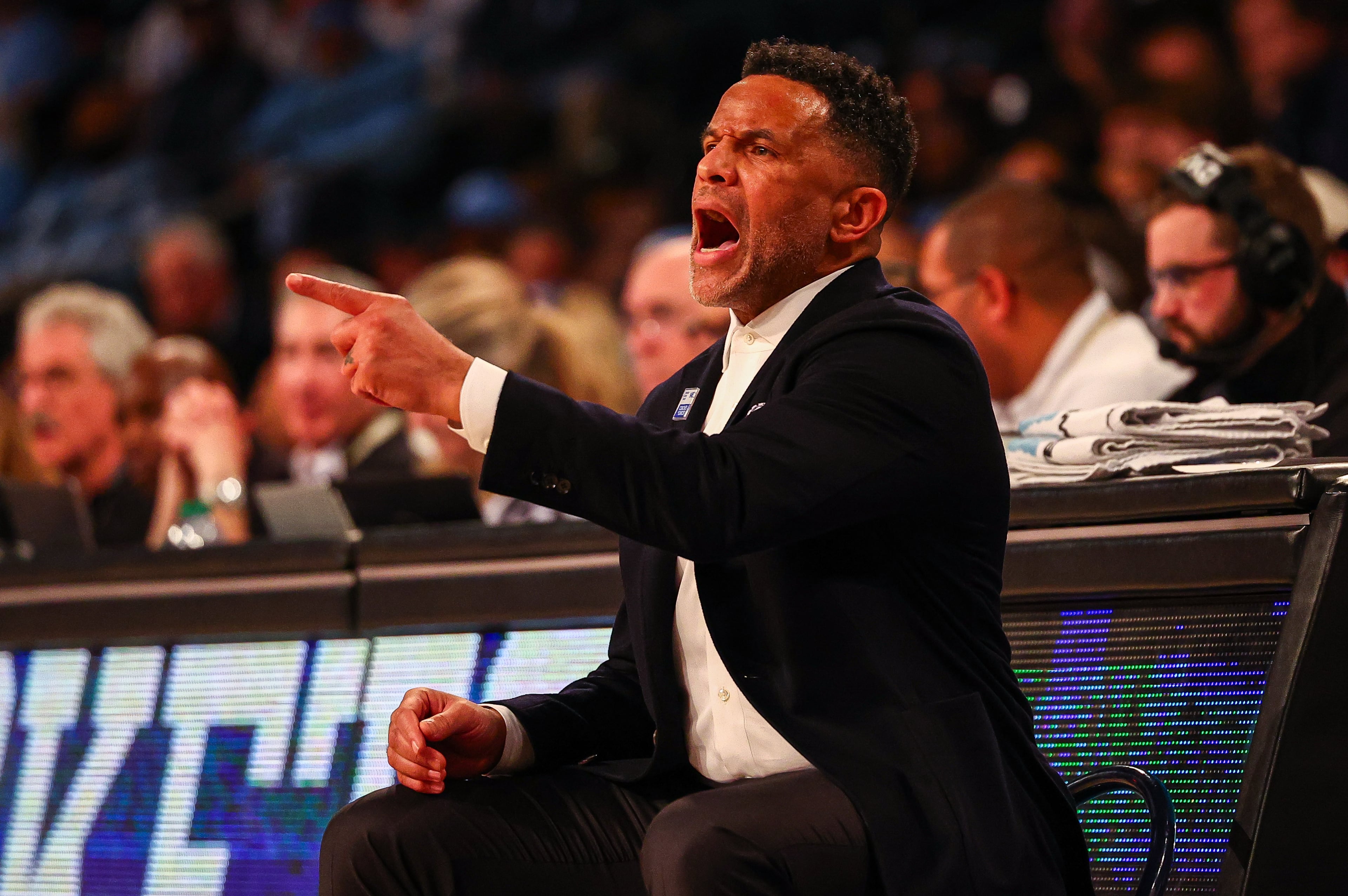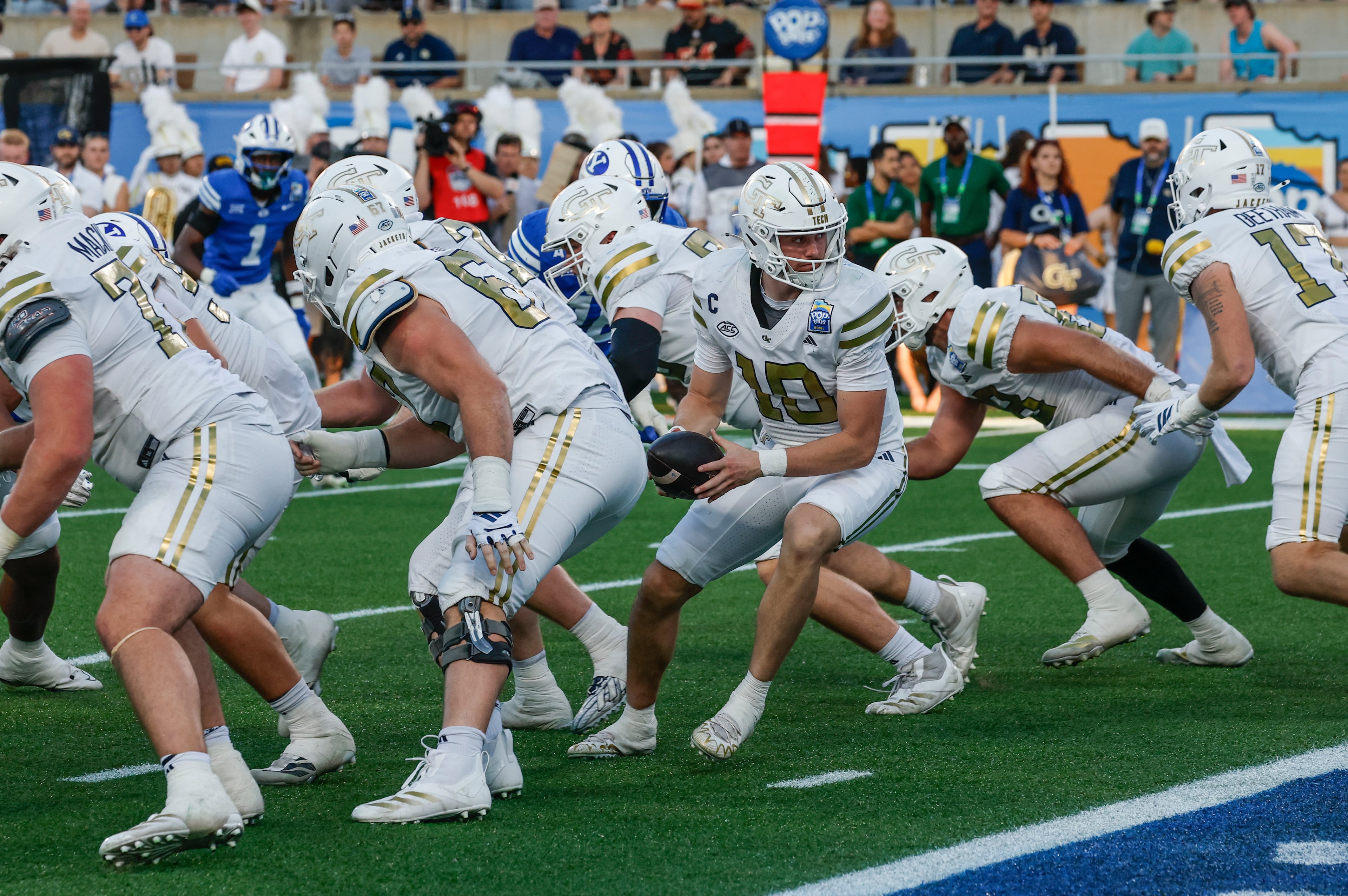With assistants’ help, Moses Wright made himself into ACC’s top player

At Georgia Tech practice, forward Moses Wright is something of a dual citizen. Sometimes he works with the perimeter players and sometimes with the post players.
Coach Josh Pastner generally gives Wright the option of training with one group initially, as long as he also gets time with the other.
“(Post players Saba Gigiberia and Rodney Howard), they mess with me now about it,” Wright told the AJC. “Whenever I start off with the guards and shift down to the bigs, they’ll be like, What are you doing, guard? Go be with the guards.”
Antipathy from his fellow post players aside, the arrangement has worked exceedingly well for the Yellow Jackets, most notably evidenced in Wright’s being named ACC player of the year Monday. Wright came to Tech exclusively as a post player, but split time with the perimeter players as a sophomore. That training, mostly under the eye of assistant coaches Eric Reveno and Anthony Wilkins, who work with the post and perimeter players, respectively, has enabled Wright to put together a senior season rare in its across-the-board excellence.
“It was always a goal to be a dominant player,” Wright said. “But this dominant is, like, crazy.”
The numbers speak to his versatility. After the regular season, Wright ranked in the top 10 in the ACC in scoring, rebounding, field-goal percentage, steals, blocked shots and minutes played, the lone player able to make that claim.
“Part of the reason Moses is the complete player that he is, is because he’s position-less,” Pastner said. “He’s able to play inside and he’s able to play outside, and both coach Wilkins and coach Reveno deserved the credit on Moses Wright’s development. And Moses deserves all the credit because he’s the one who’s been producing.”

Wright’s all-court development was on particular display Feb. 23, when the Jackets were in desperate need of a win at No. 16 Virginia Tech. To that point, the section on Tech’s NCAA Tournament resume asking for “Key road wins” was filled in with “Lost close games at Virginia and Clemson??” and a nervous smile emoji.
In Blacksburg, Va., Wright was an offensive force. He swished a pick-and-pop 3. Isolated against Hokies forward Keve Aluma, he dribbled in from just inside the midcourt logo, created space with a feint and pulled up for a long-range jump shot. He dunked off a pick-and-roll with Jordan Usher.
Perhaps most memorably, he posted up Aluma on the low block and staggered him with a shoulder to Aluma’s chest to clear space for a dunk. Wright finished the game with nine field goals on 11 attempts to go with 7-for-11 from the free-throw line, 10 rebounds (three offensive) and three assists.
“I kind of was scoring at all three levels that game,” Wright said. “It is a great feeling when I do do that. It just feels like everything else opens up.”
“What stands out is, I think he can enforce his will on the game in a very specific way,” Wilkins said. “He doesn’t just allow the defense to determine for him his choices.”
As a freshman, Wright worked exclusively with Reveno. Still learning to play and train with consistency of effort, playing time was limited, as it was in his sophomore season. It was then that Wilkins, in his first year with the team, began to work with Wright before and after practice.
Ultimately, seeing that Wright would be best-served training as both a post and perimeter player, Pastner had Wright work with both groups during practice. The good days in practice began to stack up. Wright finished the season with a standout effort in the Jackets’ ACC Tournament loss to Notre Dame – 25 points on 12-for-18 shooting to go with seven rebounds, three assists and two blocks.
“After that, I was like, I can really battle in this league now,” Wright said. “Every day, it was just getting better and just tightening up my skills.”
From Reveno, Wright has developed his post game. He has a soft touch with his jump hook, pivots effectively and seals off defenders well. He has learned to play more physically as he has added muscle and power through work with strength coach Dan Taylor.
“So really, just a story of progress,” Reveno said. “A lot of hard work between when he stepped on campus to now. Probably one of the more significant amounts of improvement I’ve seen in somebody in my career.”
From Wilkins, it was the development of a perimeter game – honing the technique of his jump shot and putting up thousands of shots – and improving his ability to drive at the basket and finish. Developing a credible jump shot and compelling defenders to guard him closely on the perimeter – thus enabling him to use his quickness to drive past them to the basket – was integral, Wilkins said.

“The more efficient he becomes in terms of knocking them down, then the scouting report has to change,” Wilkins said. “‘OK, you’ve got to close out to this guy on the touch.’”
They both have witnessed Wright’s development into a player who responds well to coaching and enjoys the process of improvement.
“I think along the way he also learned he likes being good,” Reveno said. “It’s really fun to dunk on someone’s head.”
Both see a player with NBA potential. The array of skills that he has developed at Tech certainly will help.
“His potential is not just making it,” Wilkins said. “I think his potential is being a 10-year guy in the NBA.”
Wilkins and Reveno have delighted in the progress. Even at the beginning, when he struggled to give sufficient attention and effort, he was still respectful, intelligent and a supportive teammate.
“I really want to see him take advantage and tap into his best version of himself,” Wilkins said. “He has so much potential and he has so much to give, I think. It’s been a pleasure being around, and he’s definitely impacted me and helped me grow as a coach, being around him.”
The ACC and NCAA tournaments await, what figure to be Wright’s final opportunities to demonstrate his progress as a Jacket. Tech will begin its run in the ACC Tournament on Thursday in Greensboro, N.C., against the winner of Wednesday’s Clemson-Miami game. After the NCAA Tournament, Wright almost certainly will be off to the next stage of his career.
“Moses is a unique case in how far he’s come,” Reveno said. “It’s special, and that’s gratifying.”



